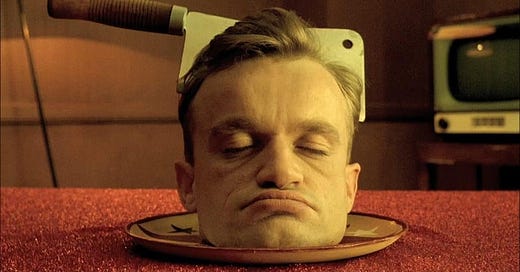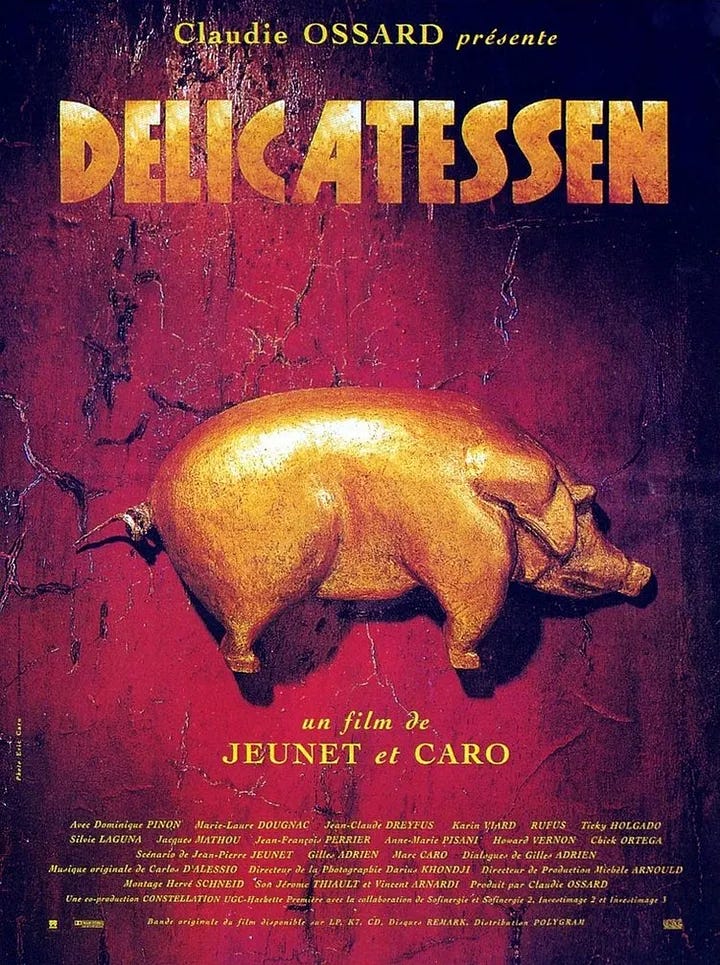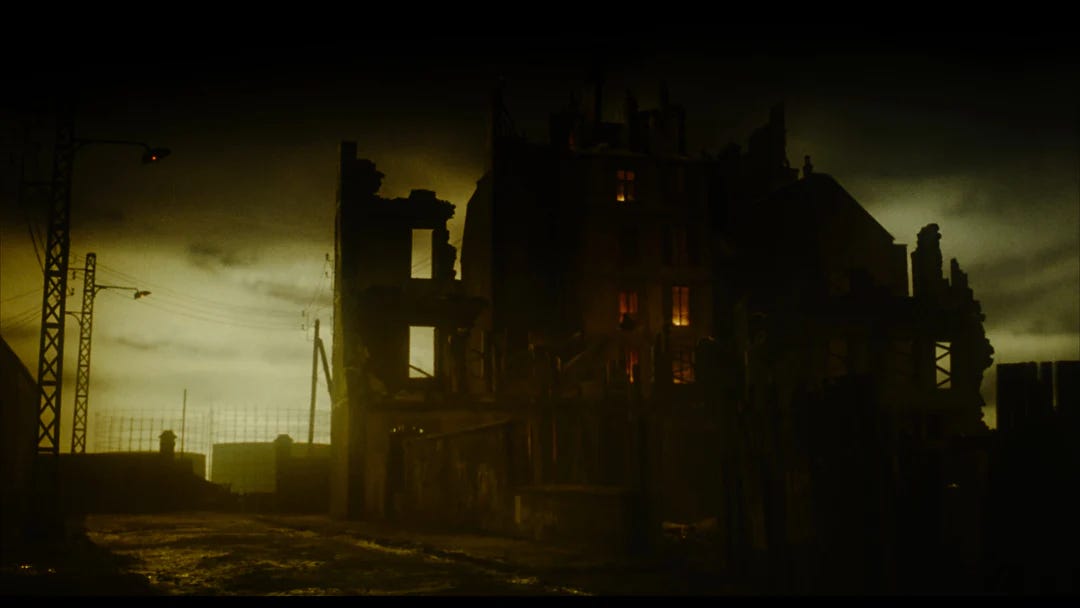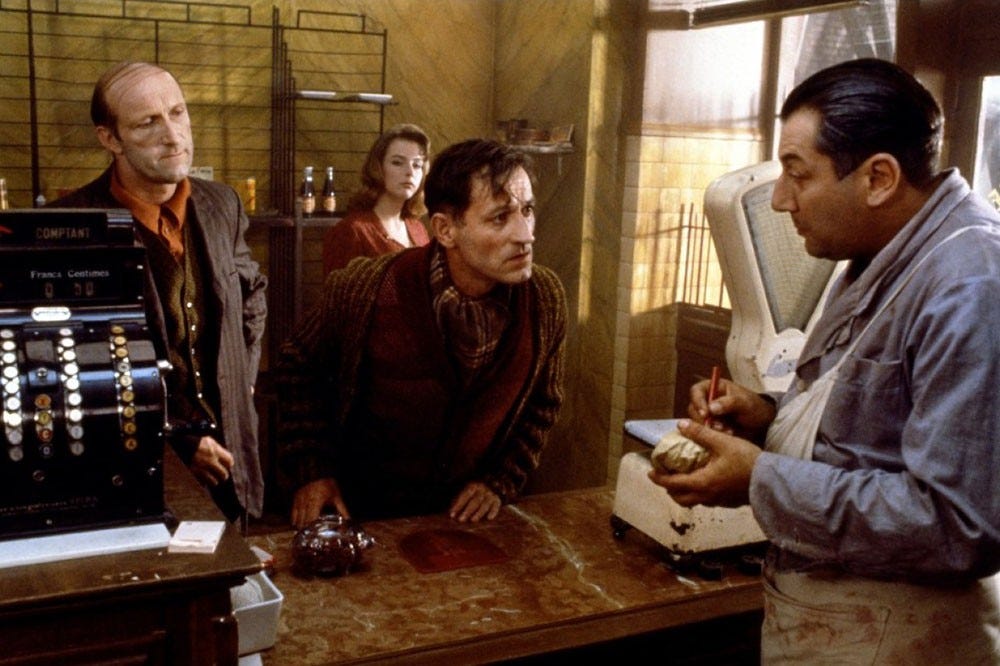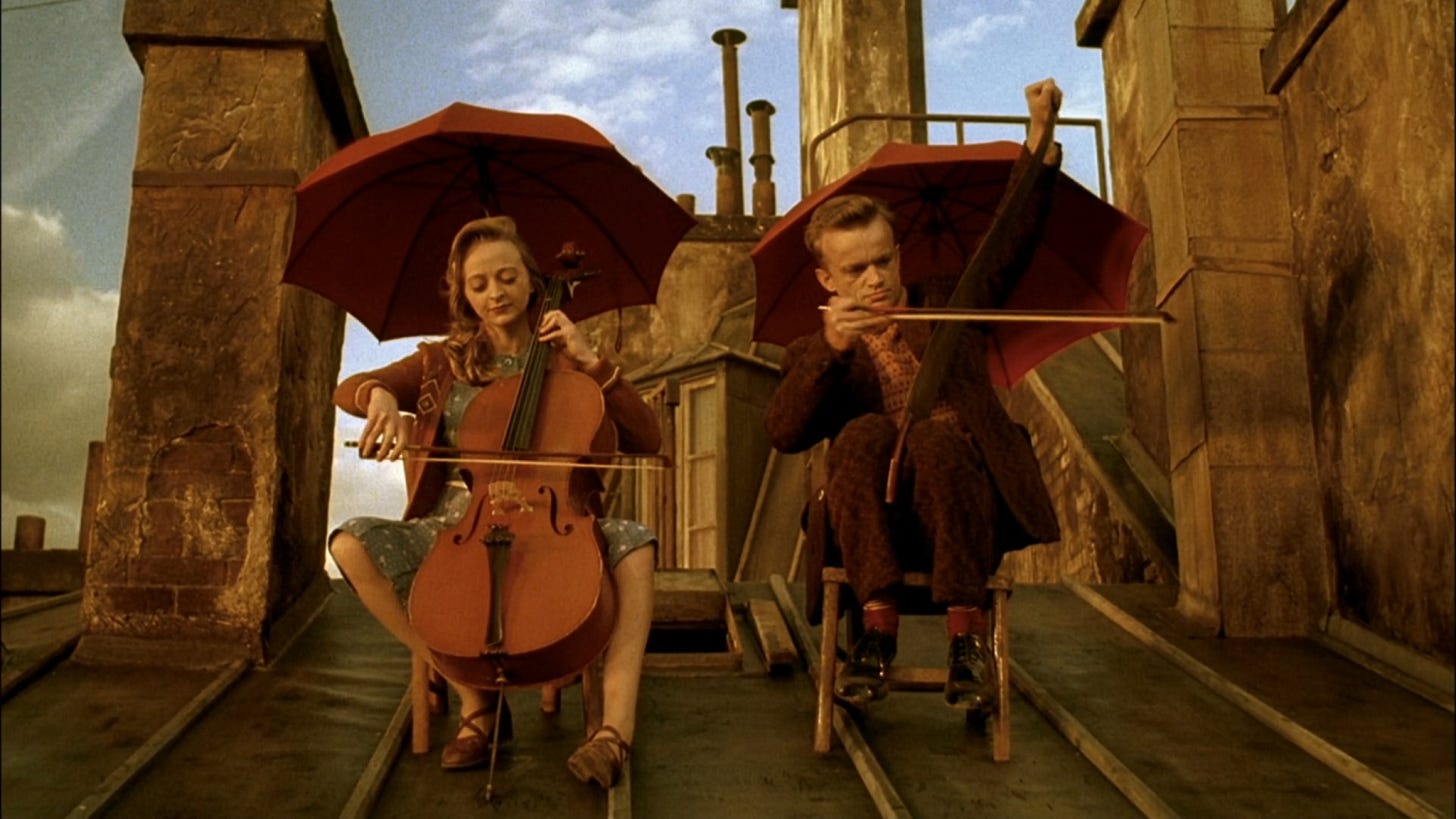Directed by Marc Caro & Jean-Pierre Jeunet
France, 1991
You wait for ages for a post-apocalyptic dystopian drama to appear on your screens and then two come along at once. This week’s film couldn’t be more different from 28 Days Later. For one thing, it’s a comedy – a comedy that actually makes you laugh, no small feat in cinema today. For another, it’s French. In fact, Delicatessen is possibly the most French film I have ever seen.
The feature debut of Marc Caro and Jean-Pierre Jeunet, the co-directors’ background in animation and experimental film is evident from the off. This is a film with a lot of style and no little substance. The cause of the societal collapse is never explained, but we are in a French town, seemingly in the 1940s… perhaps World War II didn’t end in quite the way we remember it. Now, I say set in a French town but from Delicatessen’s first frame, as the camera glides through a sepia smog there is little to see other than rubble and ruins until it stops and alights on, yes, a delicatessen. Again, delicatessen may be a misnomer as there is nothing on sale here other than parcels of meat. I assume it is meat as the first person we happen upon is Clapet (Jean-Claude Dreyfus), a heavily-jowled butcher who is eagerly, too eagerly, sharpening his knives. The deli is on the ground floor of a tenement block owned by the butcher, and it is apparently the last building standing.
Delicatessen’s production design is extraordinary: meticulous, imaginative, and deeply cinematic. The muted colour palette and exaggerated perspectives – Dutch angles aplenty – lend the composition of every scene an expressionist look that owes a debt to silent cinema. The aesthetic provides what these days we would call an ‘immersive experience’.
You are drawn into a world peopled by a bizarre collection of eccentric characters, most of them tenants, whose elastic and hyper-expressive faces mirror the most comically grotesque creations of Charles Dickens. We are introduced to them in a cleverly edited sequence which sets the film’s tone. The camera catches Clapet in flagrante delicto. The rhythm of his bedsprings is matched by the bow strokes of his extremely myopic daughter, Julie (Marie-Laure Dougnac), as she plays her cello; a man inflating a bicycle tyre; knitting needles clacking away; a woman beating a rug; and the handyman roll painting a ceiling. The tempo accelerates to a cataclysmic ending, or should I say, erm… climax.
The plot itself could have been borrowed from a fairytale by the Brothers Grimm. Food is so scarce that grains and pulses have become the currency of exchange, and well, in order to get hold of meat – remember this is France! – the tenants have to resort to creative means. La viande is sourced by the butcher who entices new tenants with employment, before they end up on the block and are sold – in parcels – to the residents. Clapet’s latest intended victim is Louison (Dominique Pinon), a rubber-faced former circus clown who takes on a job as the building’s handyman.
Everybody is in on the scheme: the perpetually hungry, petit bourgeois Marcel Tapioca, with his wife and two children; Roger and Robert, brothers who – as if nothing has changed – manufacture toys that make animal noises; Aurore Interligator, a woman so tormented by an abusive voice only she can hear (actually another tenant), that she spends much of the film trying, by a variety of methods, to end her life – unsuccessfully. And that is not to mention the Troglodistes, an underground group of vegetarian guerillas who live in the town’s sewers and combat the cannibalistic community. But my plaudits go to the anonymous, bulge-eyed man living in the waterlogged basement surrounded by snails and frogs. He is the only character with a ready-made food supply.
Predictably, Julie - Clapet’s estranged daughter - takes a shine to Louison and helps him evade the butcher’s block. They make for a charmingly oddball couple, and their story leads to a suitably heart-warming ending. Though to be honest, what makes Delicatessen work so well is the Tex Avery-wackiness, the screwball, slapstick barrage of rapid-fire visual gags: a surreal anarchy that leads to the building’s eventual collapse.
A whimsical morsel then? Perhaps, but then again there are definite parallels with another film we have reviewed. A black comedy featuring a demanding invalid and his resentful servant, living together in a dimly lit room. Food is currency and outside is a wasteland – a cataclysmic event has taken place. Yes, Samuel Beckett’s Endgame. Is Delicatessen really just a simple amuse-bouche, or in an absurd world devoid of meaning are we watching an existential cry in the darkness?
Reids’ Results (out of 100)
C - 76
T - 74
N - 73
S - 80
Thank you for reading Reids on Film. If you enjoyed our review please share with a friend and do leave a comment.
Coming next… Godzilla Minus One(2023)

